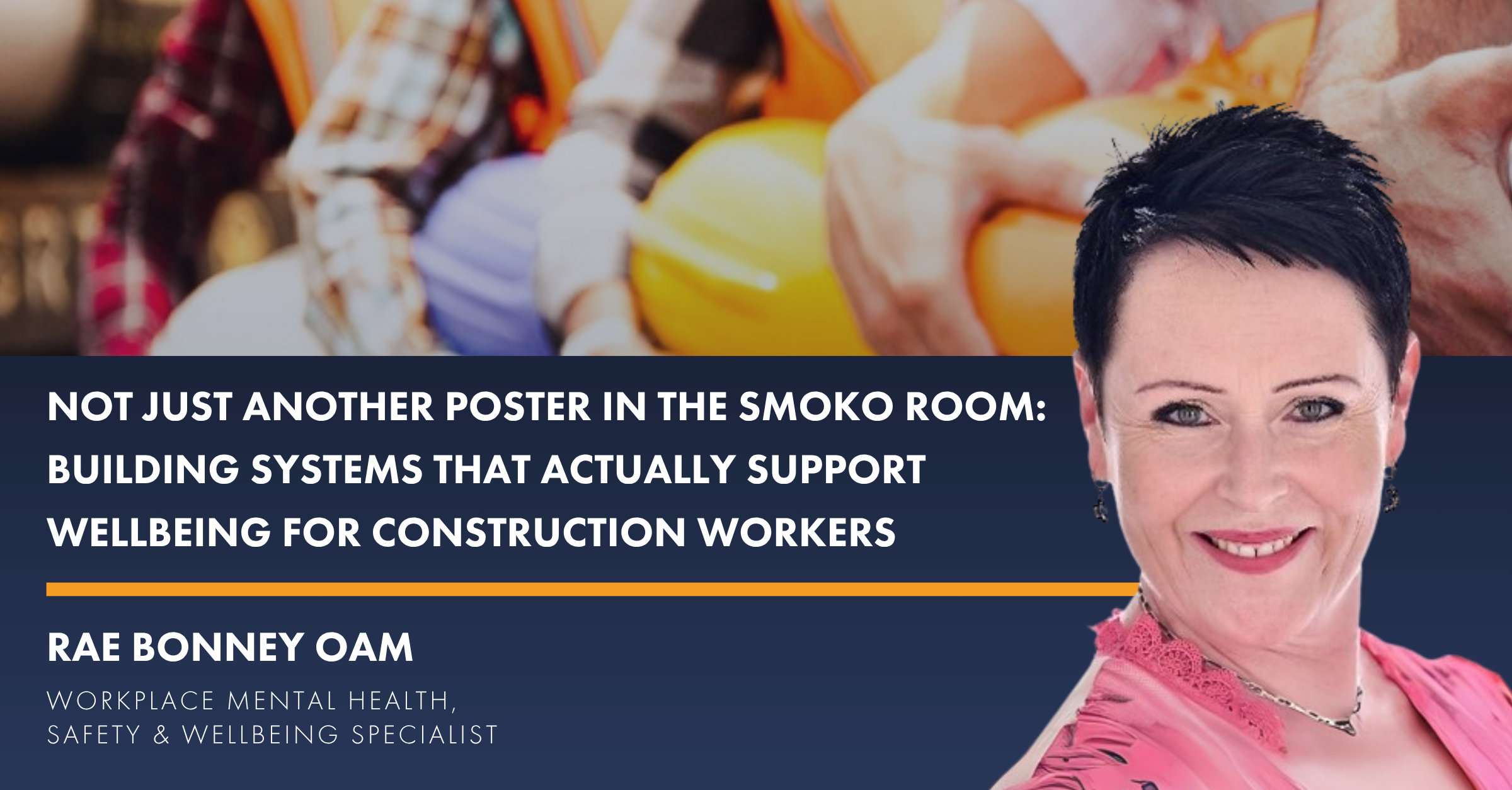Proptech Building Momentum in Australasia.
We recently had the pleasure of speaking with Jeanne Casey, Global Head of Proptech at Nuveen, about the explosive development of tech in the real estate industry. Keep reading to find out her exclusive insights:
FuturePlace: Can you describe your current role?
Jeanne Casey: I am the Global Head of Proptech and Innovation at Nuveen Real Estate. We are one of the world’s largest real estate investment managers with about $150 billion in assets under management across sectors like housing, office, retail, and industrial. Proptech and Innovation is a new function within Nuveen which was officially launched when I joined the firm about 10 months ago.
My role is multifaceted and my team works cross-functionally on Proptech initiatives. We serve as connective tissue between our real estate investment and asset management teams, technology groups, and sustainability team. My team is focused on providing ongoing and highly relevant education for our colleagues around trends, new technologies, and new companies that are important to Nuveen. We try to thoughtfully expand Nuveen’s connectivity with the global Proptech ecosystem by curating introductions to companies and teams that are relevant to our highest priority tech initiatives. We are also launching venture capital capabilities, which I’m personally very excited about since I’ve spent over a decade as a VC.
FP: How has your background in venture capital equipped you for the digital transformation of the real estate sector?
JC: As a venture capitalist, I developed a strong ‘quick filter’ and the ability to articulate a thesis and build conviction around that thesis. These skills are helpful in figuring out how a big organization like Nuveen should be thinking about Proptech and innovation, and where we should be focused first. I’ve seen a very high volume of Proptech companies over the years, and I’m able to recognize patterns across what has worked and what hasn’t. Proptech is rapidly evolving and the startup landscape is constantly changing, so having that venture capital experience is helpful in deciphering signal from noise.
I started my career in fintech, and there are a lot of parallels from the last decade in financial services to what’s happening in real estate today. The real estate industry is beginning to embrace technology, and I expect to see a lot more willingness to adopt new digital tools in the coming years.
FP: What’s been the most pervasive challenge you’ve faced in your position at Nuveen?
JC: I would say the combination of the size of Nuveen and the immense number of Proptech startups out there – it’s a lot to try to get your arms around the scale of both of those things. The sheer number of startups, many of which have aggressive marketing strategies, can create a lot of noise and confusion for my colleagues. When many vendors are reaching out to people who aren’t necessarily end-users or decision-makers, there is a risk of wasting time and resources. I’ve found an important part of my role is to re-center everyone on the few core areas where Proptech naturally aligns with Nuveen’s existing business goals.
FP: For those unfamiliar with Proptech, you’ve distilled your explanation into “four pillars.” Can you walk us through each pillar?
JC: I did a lot of listening and learning during my first six months at Nuveen. One of my biggest takeaways was that everyone knew the term ‘Proptech’ but had a different definition. For example, some people would think of Proptech exclusively as sensors within a building that can control the lights or HVAC. Others would think of Proptech as the deal management platform we’re rolling out. I wanted to broaden everyone’s understanding of Proptech and so I came up with a taxonomy that I shared across the firm.
I think the definition of Proptech is much more simple and broad than most real estate folks have in mind. I define it as any digital tool that’s helping to improve the real estate world. Within that context, I see four pillars that span the lifecycle of a real estate asset:
The first pillar involves tools to help find and evaluate a new investment opportunity or a new property. Technologies within the first pillar include things like CRM tools, listing services, and other diligence tools.
The second pillar includes tools that are used to transact and finance those opportunities (such as deal management platforms, equity and debt financing platforms, i-buyers, etc.). Any technology that helps reduce friction in the transaction of a real estate asset I would put in this category.
The third pillar is around construction technology and the technologies available to make development, redevelopment, and construction more efficient.
Finally, the fourth pillar includes technologies that address the management and operations of an asset.
FP: Do you see any exciting developments in property technology within the Australasian market?
JC: Since I am based in the US and have a very small team, I have to admit that my views are fairly US-centric. However, there is definitely a ton of excitement and early-stage startup activity throughout the Asian market, and I have been fortunate to meet many talented entrepreneurs building compelling companies in the region. We’re also starting to see more traditional VC activity. Notably, real estate firms in the region seem to be very forward-thinking. They want to proactively understand what’s being built and deployed in the West. I’ve seen many APAC-based real estate investors become limited partners in Proptech venture funds in order to have a finger on the pulse of what’s happening worldwide.
In many ways there are some sectors in Australasia that are well ahead of the West. Retail certainly comes to mind – shopping centers in China and other markets are probably a decade or two more advanced than what we have in the US. So in many ways, we’re looking to that part of the world to understand how our retail sector may evolve in the US. A lot of that is due to the high adoption of mobile payments in China and other markets. “Super apps” have exploded in popularity and combine fintech, payments, social media, and messaging to unlock a lot of innovation in mobile and social commerce.
FP: It’s often said that real estate has generally been slow or even resistant to adopting new technologies. How do you bridge the knowledge gap when it comes to Proptech?
JC: Yes real estate has been slow, but I think the Proptech world has some work to do as well with how they sell and talk to the real estate industry. I believe ongoing education is crucial, as is a basic taxonomy to make sure everyone is speaking the same language. Proptech companies should focus on better understanding and articulating the problem their technology solves for their customers. Perhaps most importantly, startups need to understand who the end users are versus the decision makers – and then understand what both of those groups’ objectives are.
FP: There’s been quite the gold rush for Proptech startups. How can you sift through all of the marketing noise to determine which companies will stick and which will fall to the wayside?
JC: It depends on whether I’m looking at a company as a potential customer or investor (or both). In general, I hone in on what will move the needle for Nuveen by being extremely clear on the goals we’re trying to achieve. Proptech doesn’t drive strategy, but it can help us better achieve our strategic goals.
Is a company solving a problem that is core to our business goals? If yes, that is a company we want to prioritize getting to know. If a startup’s product provides an incremental improvement on something on the periphery, then that’s not a relationship we’ll prioritize this year.
As a VC I look at the team, product, market, and economics more holistically. Is the team excellent? Is there product/market fit and a big enough market opportunity? Do the unit economics make sense? Are all of these answers compelling enough that the company will be able to fundraise in the future or have a path to a profitable exit?
FP: What do you believe is going to be the next big tech trend in Proptech?
JC: That’s a great question. I gave it a bunch of thought this week when I was at a conference and caught up with many startups and other real estate innovation folks. A big theme I’m seeing is a shift away from thinking of real estate as a static product to real estate as more of a customizable service.
There’s been a massive mindset shift, and COVID has accelerated the idea of real estate as a service, putting the customer experience at the center of the offering. As a VC that draws on trends and themes from other industries, I think that’s a fascinating shift in attitude because it creates an opportunity to borrow some concepts that have worked to enhance the consumer experience in other markets.
Many new tech startups are helping to put the customer at the center of procuring healthcare, for example. Healthcare trends aren’t directly related to real estate, but I think we’ll be able to see and borrow a lot of interesting technologies and business models from sectors like healthcare and education as real estate increasingly prioritizes customer experience.
FP: In a recent report from Nuveen and MIPIM, you had written that Proptech is maturing as a technology category. Though the report is only two months old, the truth is that the sector is rapidly evolving. Is there an area where Proptech has continued to flourish since the report’s publication?
JC: The macro environment has changed dramatically since I wrote that up just a short while ago. Proptech in a vacuum is still maturing, and I think the current macro environment will further accelerate that maturation. Part of that process will be consolidation and a wave of M&A that we are likely to see unfold in the coming months. A more challenging macro environment may cause certain areas of Proptech to stagnate. However, I don’t see any signs that Proptech focused on sustainability and carbon footprints will slow down. That is an area of Proptech I expect to continue to flourish, even in a recessionary environment.
Real Estate Innovation Festival
FuturePlace would like to thank Jeanne for her contributions to shaping the agenda for the Real Estate Innovation Festival, taking place on 9-10 November 2022. Bringing together the game changers of the real estate industry for exclusive insights, business and networking opportunities, and to showcase the most innovative PropTech solutions to unprecedented challenges.





